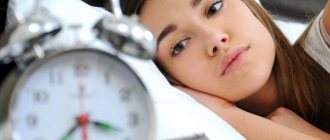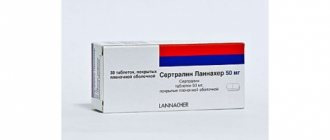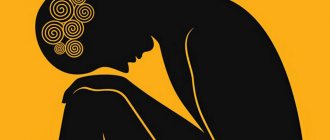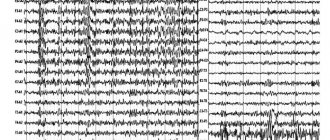Treatment of depression in Moscow - individually adapted programs. We use special psychotherapeutic techniques in combination with restorative medicine techniques. The cure is fairly quick and does not involve the use of potent or addictive drugs. Includes individual selection of methods of psychotherapy, biotherapy and lifestyle changes in each specific case. We use the body's hidden reserves, which determines our effective therapy.
Modern hospital replacement techniques using active neurometabolic therapy provide a quick and sustainable effect. Brain Clinic does not use ineffective or ineffective methods of treating depression.
If depression begins to envelop a person, it begins to seem that this dark streak will never end. That happiness and joy of life do not exist for you in the world. Depression reduces the quality of life so much that the person himself begins to help the disease in suppressing his own will and attitude. The sensations of life become dull and a person can no longer fail to see joyful moments.
However, we know that even the most severe depression can be treated. We prove this every day, helping people return happiness and a sense of joy every day to their souls. Researching treatment options for depression will help you decide which approach is right for you. And we will help you individually adapt and properly carry out treatment for depression. Together we will definitely defeat this disease.
Why Our Depression Treatment Always Works
Treatment of depression in Moscow at Brain Clinic has its own characteristics. We take into account the individual parameters of a person and the usual rhythm of a person’s life. The clinic’s specialists use hospital-replacing methods of restorative medicine that are able to treat depression as quickly and effectively as possible. We take into account all factors influencing the duration of therapy and reduce the time as much as possible.
Brain Clinic doctors have extensive positive experience in treating depression in Moscow. We take into account not only the features of metabolic processes, physiology and structure of the nervous system, but also the features of the human environment. We take into account the influence of the social structure in which the patient is located, which is very important to obtain a quality effect. Our doctors will be able to correctly determine the true cause of a depressive episode. We tailor the therapeutic program individually. This allows you to completely protect the recovery process of nervous activity and eliminates the negative impact on the body.
Our treatment is based not only on obtaining a quick effect, but also on the long-term effect of therapeutic influence.
Call +7 495 135-44-02
We help in the most severe cases, even if previous treatment did not help. Treatment at the clinic is guaranteed on an anonymous basis.
Treatment of depression in the clinic
Based on current evidence, we argue that depression is not an underlying disease; it is a symptom that indicates that your nervous system requires specialist help. We cure depression by viewing it as a temporarily damaged part of the whole organism, which helps to cope with this temporary illness. That is why we put full-fledged diagnostics at the forefront. We consider depression in the context of the integrity and individuality of the body as a single system. Correct and accurate diagnostics combined with a wealth of experience and fundamental knowledge give us the opportunity to select individual programs. As a result, treatment of depression in our clinic is always effective.
The final result depends on the completeness and correctness of diagnostic manipulations, as well as on experience. Intermediate periods of improvement do not always indicate correct treatment for depression.
Brain Clinic doctors have extensive experience in treating depression of various types. First of all, our therapy is aimed at maximizing the safety of the methods used for the human body.
Call
Treatment for depression at Brain Clinic is provided on an anonymous basis. All personal data is securely protected.
Treatment of depression in the clinic is carried out using the most modern hospital-based methods of restorative medicine. We try to traumatize a person’s psychological state as little as possible with therapeutic measures. The priority of our doctors’ work is to restore the temporary imbalance of the nervous system and its performance, and not the usual removal of symptoms.
Precautionary measures
Sleep deprivation (especially long-term) imposes special safety requirements. At this time, it is strictly (I said: CATEGORICALLY) prohibited from driving and using machines and mechanisms that can cause injury. It is not recommended to leave the house (especially on the roadway), or engage in any other activity that requires increased attention.
Before starting the experiments, you should get a good night's sleep and carve out a sufficient period of free time during which there will be no urgent matters. No one knows how your body will react to sleep deprivation, so if you try to pull off this trick before taking a test/exam, you can really get burned.
Deprivation is not a magic wand. This is a zealous, unbroken horse that has yet to be learned to control!
Treatment of depression in Moscow
In the capital, life is always more stressful and intense. This is why we often encounter very “exotic” manifestations of mental and psychological spectrum disorders. In Moscow, more often than in other regions, various forms of hidden depression occur. This is due not only to the busy rhythm of life, but also to the “floating” diet, work and rest. In this regard, treatment of depression in Moscow has a number of very important features, without which any therapy will be ineffective or ineffective.
One of the most difficult tasks of a doctor when treating depression in Moscow is organizing comprehensive medical care in the conditions of a metropolis, its rhythm of life and establishing an accurate diagnosis in the shortest possible time (in the early stages of the disease). With regard to depression, the situation is complicated by the fact that the picture of the disease can be very different from the classic form. Many scientists believe that improved living conditions, the disappearance of many serious diseases, and the use of powerful drugs have led in recent decades to the emergence of erased or mixed forms of the disease. Treatment of depression in Moscow began to require new forms of approach, obtaining quick results.
Many metropolitan doctors, in their clinical practice, encounter patients with disorders of bodily sensations. This can be expressed by pain, numbness, goosebumps, etc. Patients undergo a large number of unnecessary examinations, visit all kinds of specialists, and take mountains of medications to no avail. Nowadays it is very rare for a person to be correctly diagnosed and given effective treatment for depression from the first visit. In Moscow, when treating depression, this has already become natural. Imagine the surprise of doctors when the result of psychotherapeutic influence is the disappearance of chronic pain, restoration of the functioning of internal organs and normalization of the autonomic nervous system. Such depression is called somatized (from “soma” - body (lat.), since it affects bodily functions) or masked (the true manifestations of depression are masked by physical equivalents). In any case, it is important that the patient comes to the right specialist (psychiatrist or psychotherapist) on time to begin proper treatment for depression in Moscow or any other city.
Treatment of depression in a private clinic
Due to the low efficiency of medical care from government medical organizations and the high likelihood of subsequent consequences of contacting government agencies, people turn to private clinics. Treatment of depression in a private clinic is carried out on an anonymous basis and registration is excluded here. And the quality of medical care in most private clinics is much higher. Although, there is a fairly high chance of ending up with ordinary swindlers in white coats.
Treatment of depression in Moscow clinics can be carried out using medications, psychotherapy or complex methods. In most cases, a course of treatment with antidepressants is required.
It is important for the patient to understand that the effect can be felt no earlier than 10-14 days from the start of therapy. This is due to the peculiarities of the interaction of drugs with the human body. The side effects that occur in the first days will disappear over time. As the condition improves, the frequency of visits to the doctor will decrease to 1-2 times every 2 weeks. But you should not lose your vigilance and complete the course of treatment before your doctor cancels therapy in order to reduce the risk of relapse of depression.
In the case of treatment of severe depression, hospitalization may be recommended for the patient. The advantages of this medical care system include higher efficiency.
Tips for treating depression
It is important to determine what is causing your depressive symptoms. It is necessary to establish the true cause of the formation of this disease. The severity and true causes of your condition are the most important factors determining the treatment method for depression. The more severe the depression and the more severe the complaints, the more intensive the treatment you may need.
Do not try to cope with the disease on your own. Since what worked well for one person, it will be contraindicated for another. This is due to various individual characteristics of the body and various formation factors. It takes special knowledge, experience and time to find the right treatment. Finding the therapy and recovery that works best for you may take some time. If you decide to begin treatment for depression, you may not immediately be able to find a doctor with whom you can overcome depression.
If you need to take medications, do not forget about physical activity, which will be determined by your attending physician. Do not ignore your doctor’s recommendations about the need for psychotherapy and other types of therapy. Follow your healthcare provider's recommendations. And, be ready for change!
Don't rely on medications alone. Medications can help relieve symptoms of depression, but this is not usually enough. Other types of treatment, including exercise and psychotherapy, can significantly increase the effectiveness of treating depression. If you are taking drug therapy, remember that medication works best when you make changes in your lifestyle.
Social support. By expanding your social connections you reduce the time and increase the effectiveness of therapy. If you have complaints of depression, do not hesitate to talk about it with loved ones or friends, seek support in group psychotherapy sessions. Asking for help is not a sign of weakness, and it will not mean that you are a burden to others. Often, simply talking to someone face to face can be a huge help.
Treating depression takes time and personal commitment. Remember that all treatments for depression require time and your active participation. Sometimes patience is lacking and can cause frustration in treatment. This is fine. The process of restoring the nervous system has its ups and downs.
Under the lid of the skull
Here we come to the most interesting part of our story. Namely, what (according to modern medicine) happens during sleep deprivation? But to do this, you first need to figure out why nature came up with sleep in the first place and why it is needed.
In addition to the fact that sleep is a natural means of rest for the body, it is actively involved in metabolic processes (i.e. metabolism). There are several types of sleep, cyclically replacing each other: slow and fast sleep.
During slow sleep, somatotropic hormone is synthesized, which is a natural nootropic (aka growth hormone, aka somatotropin, aka somatropin, aka growth hormone), which is responsible for growth, enhancing protein synthesis, preventing fat deposition, increasing blood glucose levels, and also affecting the central nervous system, as a result of which memory, cognitive functions and mood are improved, but with increased concentration it can cause depression, the remedy for which is sleep deprivation, which suppresses its production.
Figure 1. Growth hormone molecule
During REM sleep, the plasticity of neurons is restored and they are enriched with oxygen, the biosynthesis of proteins and RNA neurons occurs, as a result of which sleep promotes the processing and storage of information. Slow-wave sleep ensures consolidation of the learned material. REM sleep implements subconscious models of expected events (which is why the Periodic Law and the benzene formula were discovered in a dream).
Sleep also restores the immune system, which is an important factor in the fight for survival, and when sleep deprivation occurs, it is recommended not to disdain medications such as Immunal (available without a prescription). In addition, when light levels drop, the body produces melatonin, which causes drowsiness and is the main active ingredient of melaxen, a very popular sleeping pill that you should not be afraid of, because exactly the same “chemistry” is found in our body.
Figure 2. Structural diagram of melatonin
Sleep deprivation mainly affects memory, and many sources argue that this effect is far from positive. But not everything is so simple! Deprivation deals the main blow to short-term memory (also short-term memory, primary memory, working memory or active memory), demonstrated in the film “Memento”, which is recommended for all students of psychology to watch.
Short-term memory stores information for a matter of seconds, but is also responsible for data processing, cognitive functions, decision-making, logic and the so-called episodic memory, which is responsible for remembering emotions and various small unimportant details. Thus, logical thinking and assimilation of material inevitably decrease during sleep deprivation, which significantly complicates preparation for tests, exams and other activities that require short-term memory activity.
Figure 3. Poster for the film "Memento" ("Remember"), clearly demonstrating the role of short-term memory
On the other hand, sleep deprivation activates declarative and procedural memory.
Figuratively speaking, declarative memory is like a large hard drive on which all the data we have accumulated and organized according to the principle of associative arrays is recorded.
Methodical memory is (roughly) program code that processes data accumulated in declarative memory. In other words, during sleep deprivation, a person is much more willing to remember what he once remembered, but then forgot, and much more confidently performs those operations for which he was previously trained. Non-creative work (dumb coding, solving standard problems) precisely belongs to this class of operations, and therefore sometimes it seems that sleep deprivation has a positive effect on creative activity, but this is not so.
During deprivation, the ability to “extract” new knowledge on the basis of old ones (i.e., logical thinking) really becomes dulled (the head doesn’t cook), but since the lion’s share of the time we solve problems that we have already encountered before (even if we have completely forgotten about it) , deprivation turns out to be a good help. Instead of studying a reference book on higher mathematics, remembering how to multiply two matrices, it’s better to just stay awake for a while; ideational-methodological memory will multiply them for us!
Deprivation also activates the production of a hormone with the unpronounceable name hypothalamic-pituitary-adrenal axis (or HPA for short), which controls the response to stress (and therefore irritability increases significantly with deprivation) and some other functions - such as digestion, immunity, mood, sexual desire. It also controls the use of energy stored in our body.
Effective treatment for depression
We use only effective and completely safe psychotherapeutic techniques together with modern restorative medicine. All therapeutic programs are selected according to the individual’s individual parameters. Hospital replacement technologies of therapy and rehabilitation of restorative medicine are used. The most modern developments of leading scientific and practical institutes, which are recommended by the WHO International Ethics Committee, are recognized as the safest and most effective means of treating depression. We are guided by the fact that depression is not just a chemical imbalance in the brain. Medicines traditionally used to treat depression can help relieve symptoms of even severe depression. However, they do not always correct the underlying problem. Often therapy requires a long-term solution to the problem. Therefore, we use not only the most modern technologies, but also our own complex techniques, which have shown high effectiveness in treating depression.
We are fighting the cause, not the effect. There will be no reason, this oppressive state will go away. We consider depression from a modern perspective, as a syndrome that indicates the presence of one or another disorder of the nervous system and we eradicate the cause of depression, and not the syndrome - depression.
For new mothers - Postpartum depression
Modern approach
Depression does not always require treatment. Very often we come across cases where one meeting between a specialist and a person is enough, and that’s where the treatment for depression ends. These symptoms leave the person forever, and the mood, sleep and general condition of the body are restored. Various physical ailments also go away, and the quality of life improves significantly.
It is no secret that when depression develops, the brain begins to process incoming information incorrectly, so a person’s condition worsens and he can no longer get out of depression on his own. This requires specialized assistance from a psychotherapist for differentiated treatment of depression, which will be based on suppressing the true causes of depression, and not just relieving symptoms.
The most common, but not always correct, advice for treating depression is to use psychotherapy as monotherapy, as the main and only method of treatment. The use of hypnosis or psychoanalysis, breathing techniques. These techniques for many types of depression are either not effective on their own or are strictly prohibited. Psychotherapy can and should be included in the treatment plan for depression only after the person’s condition has completely stabilized. Only in this way will psychotherapeutic techniques be most effective. When the brain is able to correctly perceive and process specific therapeutic information, psychotherapy becomes necessary in the treatment of depression of any origin.
Stimulants and hypnotics
How can we keep ourselves on our feet if the brain switches off, spontaneously falling into sleep, which is not part of our plans?
The most common stimulant is coffee. Firstly, it is far from harmless and has a detrimental effect on both the heart and liver, and secondly, for me, coffee is the best sleeping pill. He drank and passed out, waking up the next morning with a wild headache. But this is all purely individual.
For better extraction of active substances, you can use hot sugar syrup or milk.
By the way, tea with milk increases activity several times, however, how you can drink this nasty thing - well, I don’t even know.
Another folk remedy is a cocktail of green tea tincture, whipped in a mixer with egg yolk, plus sugar (to taste).
A contrast shower, irregular music (not necessarily loud), cigarettes, and much more also help. For example, pain (for those who are not afraid of it).
Now let's talk about the opposite. What to do if it is critically necessary to fall asleep (hallucinations are already enough), but you just can’t fall asleep. Sleeping pills in such cases are usually ineffective (unless you take them in huge doses with the risk of falling asleep forever), and you have to dodge.
A warm bath is an excellent way to relaxation, sometimes ending in heaven (there was such a precedent with mice), so control the water level so that if something happens you don’t choke.
Music. To my taste, this is something like Crest of Darkness or another monotonously noisy group.
And finally, tossing and turning in bed is not an option at all. It's better to do something. Sleep will come on its own.
Who has depression?
Depressive states can be observed in every person, but not everyone develops these states into painful, long-term disorders that reduce the quality of life. However, our treatment for depression always produces a positive effect, regardless of the patient’s gender and age.
Depressive states of a person are associated both with the social environment and with various individual life situations and characteristics of the development of the nervous system of each person individually.
Establishing an accurate and complete diagnosis and identifying the true causes of depressive conditions is the key to obtaining positive results in the treatment of depression.
Depression is curable!
And this is worth remembering for everyone, especially people suffering from this disease. It is important to know a few rules so that the result is complete and the treatment does not take a lifetime.
How to treat depression
- Find a competent and conscientious specialist;
- Seek help in person;
- Follow all the doctor’s instructions, completely trusting him;
- Don't look for shortcut solutions to the problem;
- Any questions you may have during treatment should only be resolved with your doctor;
- Remember, treatment for depression is carried out only by a psychotherapist or psychiatrist;
- Contacting psychologists of different directions will lead to complications;
- If treatment for depression takes an unreasonably long time without results, look for another doctor;
- Therapy should be comprehensive, combining several techniques;
- Do not violate the prescribed regime.
Only in this case will the treatment of depression be complete and safe.
Remember that you can always find effective help and support from our specialists. Treatment for depression in our clinic is completely tailored to each individual.
Don't panic! Despite the fact that depression is often accompanied by various somatic disorders and feelings of physical illness (pain, gastrointestinal disorders, cardiovascular disorders, impaired autonomic nervous system, etc.), diseases with similar symptoms respond well to treatment!
Such disorders are described on the pages of our website in the “Psychosomatic Disorders” section.
You can learn more about the problems of treating depression and the types of depression in the article - Depression.
We do not use methods that are not effective or proven.
Side effects or retribution for thoughtlessness
The first experiences of deprivation are usually very positive. In the first morning hours after a sleepless night, there is an improvement in mood, increased creativity, and a retreat of depression, but then depression returns again (sometimes flaring up with greater force), and the only means of combating it (with the exception of taking antidepressants) is a repeated cycle of deprivation, which has already been perceived for much longer. more painful - drowsiness, irritability, decreased concentration, reaching its peak at midnight and before sunrise (at four to six o'clock in the morning).
At this time, it is important to occupy yourself with something interesting that requires mental (not physical!) activity. TV, books (especially in the style of “War and Peace”) in this situation will work like a sleeping pill, so in advance, before deciding on deprivation, you need to think through an action plan and throw a bunch of interesting things into your piggy bank.
Prolonged total deprivation (over 36 hours) usually causes terrible withdrawal symptoms at first. It breaks so much that death seems like a natural way out of the situation and the only liberation. Well, aspirin relieves muscle pain, but you have to overcome the psychological withdrawal on your own.
Physical labor during deprivation is not exactly contraindicated, but performance actually decreases. Fatigue sets in very quickly, which is difficult to combat (however, most programmers only do physical work in the country, and now is not the season yet).
There is a large number of studies showing that chronic lack of sleep leads to irreversible damage to the brain, and therefore it is better not to abuse partial deprivation, but to use complete deprivation, after which give the body a good night's sleep.
There are also studies indicating that deprivation is contraindicated for people with diabetes or predisposed to this disease.
Methods used in the clinic
Medication method - drugs are used that improve and normalize the metabolic processes of the brain, stabilizing hormonal levels and physical condition. Depending on the condition, the causes of the disease and individual characteristics, drugs can be used in various combinations and doses. We use antidepressants, neurometabolic therapy, antipsychotics, mood stabilizers, vitamins, and amino acid therapy. Also, if necessary, other drugs may be prescribed for individual therapy.
The use of drug therapy is always justified and rationally selected on an individual basis. Self-medication causes complex complications. In some cases, antidepressants, tranquilizers and other drugs may be strictly prohibited for use!
Psychotherapeutic method - we use a wide range of techniques that our specialists masterfully master. The main methods of psychotherapy for depressive disorders are existential psychotherapy, psychodynamic psychotherapy, cognitive behavioral psychotherapy, trance methods of psychotherapy, etc. The methods are usually used sequentially, in reasonable combination with each other. The use of only one technique in psychotherapy in the treatment of depression is usually either ineffective or does not bring the desired result at all. In most cases, hypnosis and trance psychotherapeutic techniques are strictly prohibited!
Physiotherapeutic methods are used in the treatment of certain types of depressive disorders. They are prescribed individually and are carried out strictly under the supervision of a specialist. In most cases, physical therapy is contraindicated. Physiotherapy may include procedures such as light therapy, color therapy, music therapy, therapeutic sleep, mesodiencephalic modulation, etc. Physiotherapy techniques cannot be the main method of treating depression.
Various techniques for artificially giving up sleep
Let's move on to the question, what is sleep deprivation? Today, several different methods of artificial sleep refusal are used in medical practice, which have their own characteristic differences. The selective method is an independent method of getting rid of drowsiness using special stimuli. Sleep is divided into several phases, from which the phase of rapid immersion should be distinguished. At this stage of night's rest, a person falls asleep, but brain activity continues to be fully active. The selective method is used in the presence of mild disorders that do not require the use of strict measures.
Partial sleep deprivation involves following a clearly structured pattern. The most commonly used scheme is in which the patient sleeps for five hours, after which he must remain active for the next 24 hours. After this, the procedure is repeated until the desired effect is achieved. The total form of sleep deprivation involves being in an active mode for several days. It is important to note that you should not get carried away with such methods, as there is a high risk of developing possible complications. Frequent use of a total form of artificial sleep refusal can lead to depressive disorder becoming chronic.
Phase change
It is known that people are divided into “larks” and “night owls”, and programmers, due to the nature of their work, very often have to change the night phase of work (night-mode) to the day-mode (day-mode). There is a concept of soft and hard phase change. During a hard shift, a person who is, say, in the nocturnal phase does not sleep all night and the entire next day, moving to the trestle bed only with the onset of darkness, waking up already in the daytime phase, as a result of which the duration of wakefulness is approximately 24 hours, which is a classic example of deprivation .
With a soft phase change, a person, after waking up, falls asleep at the “proper” time, reducing the wakefulness to six hours. It is believed that a mild phase change is much easier to tolerate by the body, but it depends on what kind of body it is. Mild phase changes are characterized by problems with falling asleep, usually solved by using sleeping pills (in these cases, official medicine recommends the use of Melaxen, available in pharmacies without a prescription). Indeed, it is difficult to simply fall asleep only about six hours after waking up, and the “restructuring” of the body to a new phase in this case takes much longer, during which a person feels constant drowsiness. A rigid change of phases, on the contrary, helps to reveal creative potential, but this is again very individual.
There is also a “floating” mode, practiced by a number of freelancers, which allows you to squeeze the maximum out of the available time from the day. The point is that a person deliberately refuses to link his internal biorhythms to the daily cycle and falls asleep not by the clock, but when he really wants to sleep and has completed all the planned tasks. When entering the floating mode, sleep duration is a constant Ts. According to the law of probability, on some day of the current work there will be more work than yesterday, and therefore the duration of wakefulness will increase by Ta, therefore, tomorrow we will wake up not at moment X, but at (X-Ta). Since this system operates predominantly in one direction (there are few reasons why we would go to bed earlier than usual, but falling behind schedule and sleeping late is quite normal), we get that the moment of awakening X continuously moves along the dial, with This results in a continuous change of “lark”/“night owl” phases. The main problem is to accustom yourself to fall asleep at dawn, especially when the rising sun hits straight into your eyes, shooting right through even thick curtains.
Sleep deprivation is much more common than it might seem at first glance, and you have to deal with it in school, in the army, in college, and at work... Many people who are used to sleeping for only a few hours are absolutely sure that this it’s normal and that’s enough for them. But this is nothing more than a delusion. Chronic lack of sleep, lasting for years, causes degradation of the nervous system, which ultimately is not beneficial, especially for people engaged in intellectual activity.
A positive effect is achieved only by alternating periods of abstinence from sleep followed by “hibernation”; everything else ruins the body. By the way, sleeping a lot is also harmful (and it was already explained above why). Prolonged depression, blues, creative crises will not keep you waiting and will trample from all the cracks into the embrasures of our consciousness.









